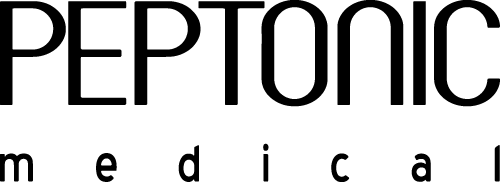Peptonic Medical AB (publ) today announced that the primary efficacy endpoints of the first part of its phase 2b study, in which the Vagitocin® gel was investigated for the treatment of vaginal atrophy, were not met. However, further analyses of the study data show that the gel, both without and with the active ingredient (oxytocin), had a marked and statistically significant alleviating effect on the Most Bothersome Symptoms (MBS) after the twelve week treatment. To enter a clinical phase 3 programme, a new phase 2b study will be required. Hence, the Company has now decided to focus on bringing the oxytocin-free gel to the market as a non-prescription product.
The primary clinical efficacy endpoint was to show a statistically significant reduction in the level of the MBS by the treatment with Vagitocin® (oxytocin) – both from baseline at the beginning of the treatment and vs. placebo during the course of the treatment period. The two secondary efficacy endpoints were to significantly increase the percentage of superficial cells of the vaginal mucosa and to significantly lower vaginal pH. None of the clinical efficacy endpoints were met. However, the results of the study show the gel, both with and without the active substance, had a significantly MBS lowering effect during the twelve week treatment.
As a consequence of these results, the Company has decided to complete the exploratory study which is still ongoing. In this study, the gel is contained and evaluated in a more commercially viable (laminated) tube instead of the glass syringe which was used in the first part of the now completed phase 2b study.
– It is of course a massive disappointment, to us as a company and to our shareholders, that the study didn’t render the results we had hoped for. This means that we are not going forward with the phase 3 programme according to the previous time plan. On the other hand, we are pleased to note that the gel, which has been developed in-house, has a significant effect in reducing the MBS. This means that we see a new opportunity, that is, to continue the development of the gel to a non-prescription product for women suffering from vaginal atrophy, says Johan Inborr, CEO of Peptonic Medical.
The Company believes that it has all the required documentation that are required for a CE-mark application submission. Consequently, the development of a product without oxytocin will be a priority for the Company. To start the phase 3 clinical development study with an oxytocin gel will require the completion of a new phase 2b study.
– This decision means a gradual change of focus of the Company, but based on the data on hand, we can see a way forward with good commercial and financial potential. We were positively surprised that our in-house developed gel, even without oxytocin, shows such a good symptom lowering effect. We will now focus on developing the non-prescription (medical device) product, which is a faster way to reach the market, says Johan Inborr.
Peptonic Medical will arrange an information meeting for its shareholders in the near future. At this meeting, the Company will present more data from the study and its plans for the future. In connection with the information meeting, the Company will issue a press release with more information to the market.
For more information, please contact;
Johan Inborr, CEO
Mobile: +46 708 853 893
E-mail: johan.inborr@peptonicmedical.se
This information is information that Peptonic Medical AB (publ) is obliged to make public pursuant to the EU Market Abuse Regulation. The information was submitted for publication, through the agency of the contact person set out above, at 14th March 2017.
About the Phase 2b clinical study
The Phase 2b study is a double-blind, placebo-controlled, multicenter study and comprise two arms of 80 patients each, in total 160 patients. The objective of the study is to investigate the effect of Vagitocin® (oxytocin 400 IU/day) compared to placebo for the treatment of vaginal atrophy. The Vagitocin® gel is stored in glass syringes and refrigerated during the study.
In an exploratory part of the study, comprising 40 study subjects, the Vagitocin® gel is stored in a laminate tube and refrigerated. The laminated tube is a commercially more viable container than the glass syringe.
The primary clinical efficacy endpoint was to show a statistically significant decrease in the level of the MBS by the treatment with Vagitocin® (oxytocin) – both from baseline at the beginning of the treatment and vs. placebo during the course of the treatment period. At the start of the study, the women participating in the study have assessed the severity of the Most Bothersome Symptom on a scale from 0 (no symptoms) to 3 (severe symptoms). Only those with a score of 2 or 3 were included in the study. At the end of the treatment period, the women made a new assessment of the severity of the symptoms.
Three clinical centres in Sweden are participating in the clinical study. These were Karolinska Sjukhuset in Huddinge, Uppsala Akademiska Sjukhuset and Norrlands Universitetssjukhus in Umeå Associate professor Aino Fianu Jonasson, at the Department of obstetrics and gynaecology at the Karolinska University hospital in Huddinge, is the principal investigator of this clinical study.
About Peptonic Medical AB
Peptonic Medical AB (publ) is an innovative Swedish pharmaceutical company developing oxytocin based products including for the treatment of menopausal symptoms, such as vaginal atrophy. The Company was founded in 2009 and its first candidate drug product is Vagitocin® – an estrogen-free product for the treatment of vaginal atrophy.
The Company has filed patent applications for the treatment of symptoms associated with vestibulitis and genital herpes.

